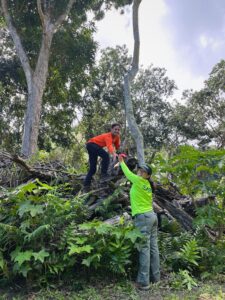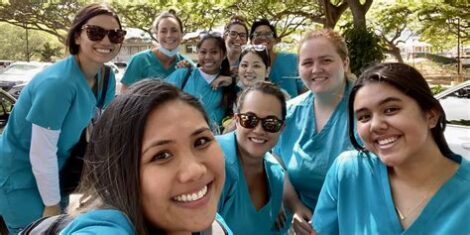Awareness, recognition, intervention: How a community can help save lives
Viewpoint
September is Suicide Prevention Awareness Month, and there is no more important time than now to learn how you can possibly help save someone’s life. We lose a person to suicide every two days in Hawaii. How can we help change this?
The stigma around asking for help because they are affected with a mental health problem is one of the main deterrents. Now, especially with increased isolation, anxiety and fear that has increased during COVID-19, I encourage you to be prepared to recognize the warning signs and risk factors of suicide, and how to intervene and help.
Awareness and Recognition
Suicide often occurs when stress and health issues combine, creating feelings of hopelessness and despair. Over time, these feelings can develop into depression. While there is no single cause for suicide, depression is a mental health condition commonly associated with it. Other suicide risk factors include:
• Anxiety conditions, post traumatic stress disorder and increased substance use.
• Prolonged stress, such as harassment, bullying, relationship problems or unemployment.
• Stressful life events, like rejection, divorce, financial crisis, and other life transitions or loss.
• Exposure to another person’s suicide.
• Previous suicide attempts.
• Family history of suicide.
• Childhood abuse, neglect or trauma.
Some of the warning signs of suicide:
• Talking about feeling hopeless or trapped or being a burden to others.
• Being in unbearable pain or talking of suicide.
• Increased substance use.
• Isolation from family, friends or usual activities.
• Aggression.
• Giving away prized possessions.
If you recognize these signs in a loved one, friend or co-worker, that is good time to check in with that person and intervene.
Intervention
Intervention with a loved one or friend can help save their life. Many times, they feel they have lost hope. Ask to talk with them privately and come from a place of caring and love. After talking for a while, if you feel they are in danger of suicide, ask the question: “Are you thinking of taking your life?” or “Are you thinking of killing yourself?” Asking these questions will not raise the risk of that person taking their life. If anything, they can open the door to get them help. Let them know it’s OK to talk about their feelings.
Offer hope by telling them of resources that have helped many other people in their position. Listen to your gut, remain calm. Asking if they are hurting is not enough. You need to find out if they have thought about taking their life. If they say yes, get more information. Ask, “Have you made a plan?” and “Do you have the means to do it?” The higher the planning, the higher the risk.
Other suggestions on what to do:
• Never leave someone at high risk alone. Tell them you care about them and will stay with them.
• Some things they tell you may be difficult to hear. Listen without judgment and be empathetic.
• Try and help them make a safety plan to help them get through difficult situations.
What not to say:
• Don’t try and fix their problems.
• Don’t use family or religious guilt or dismiss their feelings as just trying to get attention.
• Don’t promise to keep it a secret or not to tell anyone.
Providing Help:
If you feel someone is in direct danger of taking their life, call 911.
Learn your local resources:
• National Suicide Prevention Lifeline, (800) 273-8255.
• Hawaii CARES (formerly the Crisis Line of Hawaii), (800) 753-6879.
• Crisis text line, text ALOHA to 741741.
• Trevor Lifeline, a lifeline for LGBTQ youth, (866) 488-7386.
• Kokua Life, a free suicide prevention app from Mental Health America of Hawaii.
• COVID Coach app, promotes self-care and mental health during the pandemic.
Add these numbers and apps to your phones and don’t be afraid to use them. We have already lost too many loved ones, and the risk factors are only increasing due to the pandemic. Please reach out and help when you see the risk factors and warning signs of suicide.
If you have any questions or want to attend one of our suicide prevention trainings, please call me anytime at (808) 242-6471.
Always remember, “You are Essential!”
* Danielle Bergan is the community coordinator for the Maui office of Mental Health America of Hawaii and is the chairwoman for E Ola Hou Prevent Suicide Maui County Task Force.




